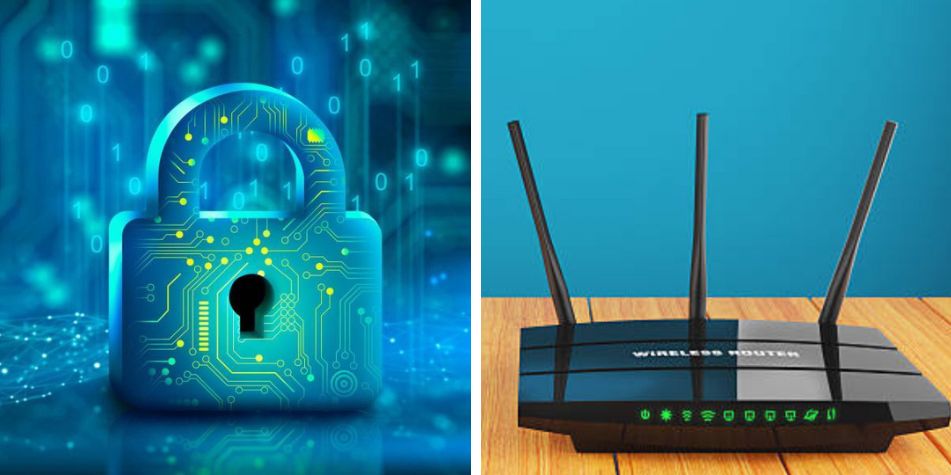Ten home devices that can be hacked

Being hacked is a nightmare, and this risk doesn't only exist when connecting to the Internet through a computer or cell phone. With the rise of the Internet of Things (IoT), which has made homes increasingly smarter, many everyday devices and systems are connected to the Internet. But the same technology that makes it easy to control lighting, the coffee maker, or the TV from your cell phone also opens the door to the risk of cyberattacks.
“Remember, 'smart' doesn't always mean 'secure.' Everyone must take responsibility for their cybersecurity and ensure the privacy of their smart homes. Hackers are unlikely to use their skills to pick your front door lock, but they could use IoT devices to exploit your personal data or the systems they're connected to,” warns a publication from the Center for Infrastructure Security and Assurance at the University of Texas at San Antonio (UTSA).
1. The home internet network
The router is the device that provides Wi-Fi access. Photo: iStock
One of the systems targeted by criminals is the home wireless network, to which smart home devices are often connected. According to cybersecurity company Norton, some signs that the network has been compromised include having trouble logging into the router's administrator settings, experiencing slow internet connections, being redirected to websites other than the one you intended to access, and seeing unrecognized downloads.
To protect yourself, one of the most important recommendations is to use strong Wi-Fi passwords that are at least 12 characters long and combine uppercase and lowercase letters, numbers, and symbols. It's also advisable to activate your router's firewall and keep it updated.
2. The cameras Webcams, surveillance cameras, and even baby monitors can also be hacked to spy on users. To prevent this, the digital security company Avast recommends reviewing each device's security settings and implementing the maximum protection they allow, as well as updating firmware and software , having strong and unique passwords for all accounts, and using two-factor authentication whenever possible.
3. Smart TV Smart TVs can also be attacked to perform tasks ranging from manipulating settings (such as changing channels or volume) to using digital assistants to access online shopping accounts and other services. As a preventive measure, cybersecurity firm Kaspersky suggests keeping TV software up-to-date, disabling or limiting access to microphones or cameras, reading the terms and conditions before accepting any agreement, and not allowing data collection by companies or apps if you are uncomfortable. Changing passwords is also recommended.

. Photo: iStock
Smart refrigerators and coffee makers are other targets, and the UTSA Infrastructure Security and Assurance Center said that some of these devices are linked to email accounts, so a security breach could give a cybercriminal access not only to the control of these devices, but also to the personal data stored in the email. Smart light bulbs are also targets, as, according to a 2019 UTSA study, many work with infrared, meaning hackers can send commands via infrared light to steal data or impersonate other IoT devices on the home network.
Recommendations to avoid being a target of attacks through any of these devices include ensuring you have a secure Wi-Fi network, protected with strong passwords, and keeping your devices or applications up to date with the latest software updates, as these often include new security patches.
7. Smart speakers A seventh target is smart speakers, such as the Amazon Echo—also known as Alexa—or Google Nest speakers, to name two, which are used as home assistants. According to Kaspersky, speakers that function as assistants allow you to control other smart parts of the home simply by speaking, making them an attractive target for hackers.
To protect yourself, it's recommended, among other measures, to review your device's security settings, mute the microphone when not in use, and configure voice recognition so that the device only recognizes the voice of the authorized user. Kaspersky adds that while it may be convenient for smart speakers to have access to information such as your phone's calendar and contacts, it also makes it more accessible to criminals, so it recommends avoiding giving devices access to this type of data.
8, 9 and 10. Computers, cell phones and video games
Photo: iStock
Finally, computers, cell phones, and online games can also be access points for criminals . Whether through phishing emails (where criminals impersonate legitimate entities to steal information), an infected USB drive, fraudulent links, or conversations with strangers in a video game, cybercriminals can extract users' personal data, allowing them to access their bank accounts, email accounts, and files such as photos, videos, and audio files, among others.
To protect yourself, the Microsoft support blog recommends, among other precautions, keeping all software up to date, using an antivirus, ensuring your passwords are secure, not opening suspicious links or attachments, avoiding sites that offer potentially illegal or pirated content, using a firewall , and not connecting USB drives or other external devices that are not your own.
Kaspersky also recommends using multi-factor authentication and, in the case of video games, not including personal information in usernames, such as real name, date of birth, or location. It also recommends avoiding sharing personal information on gaming forums and only downloading items from legitimate sources.
Other tips for your smart home While there's no way to ensure your smart home is 100% protected from cyberattacks, there are several steps you can take to create a more secure environment.
To begin with, it's recommended to research smart devices before purchasing them to ensure they have security features. Additionally, when purchasing a device, it's advisable to read the fine print and review the default privacy and data settings.
Using strong, unique passwords for each device or system is also key to avoiding risks; as is keeping systems updated and ensuring that the Wi-Fi network to which the devices are connected is also protected.
Additionally, cybersecurity firm McAfee recommends segmenting and configuring a separate or 'guest' network for smart devices, so that they are not on the same network as your computer or cell phone, which often contain personal documents and more sensitive information. "This way, if one smart device is compromised, a hacker will still have difficulty accessing your other devices, since they are on a different network," the company said.
TECHBIT (*) - EL UNIVERSAL (MEXICO)
(*) With additional information from EL TIEMPO.
eltiempo





